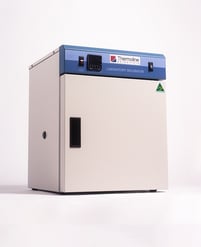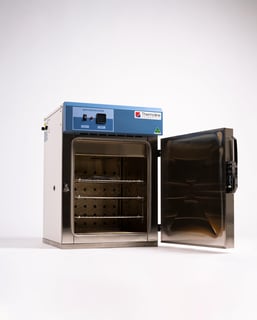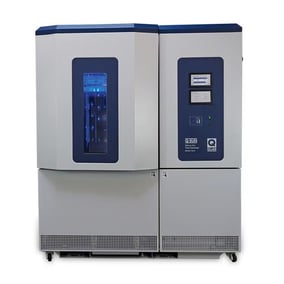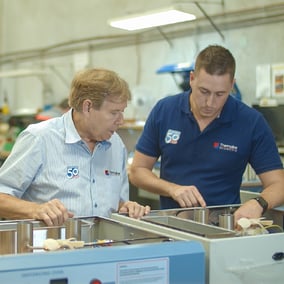It can sometimes be confusing knowing whether to purchase an incubator, an oven or a dehydrator for your application or use. While they may look similar and operate in a similar fashion, incubators and ovens have vastly different purposes and choosing the wrong product could mean you end up with something you won’t be able to use. By answering a few common questions, you will be able to determine what is right for your laboratory.

1. What temperature do you intend to run at?
Incubators generally control temperature between 30°C and 60°C. An oven will be required for temperatures 70°C up to 250°C. If you require temperatures up to 300°C then you will need to have a look at our High Temp Oven range. For temperatures below 30°C, it is recommended you look at our refrigerated incubator range.
2. Fan Forced or Natural Convection?
A fan forced incubator or oven will provide you with superior temperature uniformity over a natural convection incubator or oven. It will also offer rapid heating times and a quicker recovery after a door opening.
There is circumstances where a natural convection incubator or oven is preferred however. This may be because you don’t want your sample to dry out or it may be because it is affected by moving air such as papers or soils. Both versions have their pros and cons.
Dehydrators are designed so that the air inside the oven is shifted outside and replaced with fresh air. This is so the moisture that is extracted from your sample is picked up and removed via the external ports. Dryer, fresh air is then introduced into the oven and the process starts over again.
3. Size
All of our incubators, oven and drying ovens come in various shapes and sizes to accommodate almost any requirement. Custom builds are also available as we have the capability to build almost anything at our manufacturing plant here in Sydney.
 4. Options?
4. Options?
Various options are available with our range of incubators, dehydrators and ovens. These include:
- Programmable Controller: In addition to the standard PID digital temperature controller, you can select a controller with a programmable function allowing you to perform ramp and dwell functions for predetermined periods of time.
- Additional shelves: For those needing more shelf space.
- Lockable Door: To protect your samples from unauthorised access.
- Dwell Timer: A dwell timer on our dehydrator can control the temperature up to a set temperature and dwell for a period of time before shutting the dehydrator off.
- Dehydrators built to AS1681: These three dehydrators, in 150 litres and 500 litres, are designed and manufactured by Thermoline to store volatile materials such as bitumen, paint or varnish. This range is built to the Australian Standard AS1681-2002 and features a purge timer prior to your process and extra safety in the form of pressure relief ports in the event of an explosion.
This guide should have helped you on your way to selecting the most appropriate model of incubator, lab oven or dehydrator. If you need any further assistance, please don’t hesitate to contact us.
Incubators: https://www.thermoline.com.au/category/incubators
Ovens: https://www.thermoline.com.au/products/laboratory-e...
Dehydrators: https://www.thermoline.com.au/products/laboratory-e...






